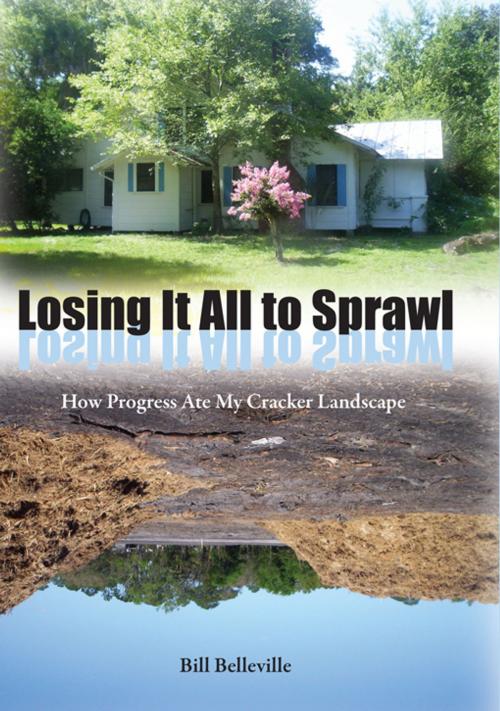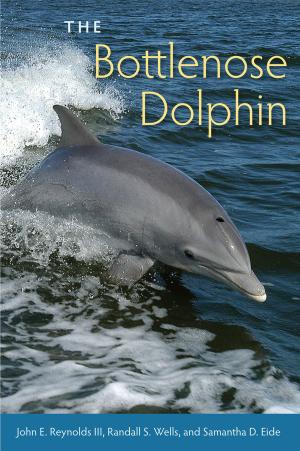Losing It All to Sprawl
How Progress Ate My Cracker Landscape
Nonfiction, Science & Nature, Nature, Environment, Environmental Conservation & Protection, History, Americas, United States| Author: | Bill Belleville | ISBN: | 9780813047966 |
| Publisher: | University Press of Florida | Publication: | March 27, 2006 |
| Imprint: | University Press of Florida | Language: | English |
| Author: | Bill Belleville |
| ISBN: | 9780813047966 |
| Publisher: | University Press of Florida |
| Publication: | March 27, 2006 |
| Imprint: | University Press of Florida |
| Language: | English |
Losing It All to Sprawl is the poignant chronicle of award-winning nature writer Bill Belleville and how he came to understand and love his historic Cracker farmhouse and "relic" neighborhood in central Florida, even as it was all wiped out from under him. Belleville's narrative is eloquent, informed, and impassioned, a saga in which tractors and backhoes trample through the woods next to his home in order to build the backbone of Florida sprawl--the mall.
As heavy machinery encircles Belleville and his community--the noise growing louder and closer, displacing everything Belleville has called home for the past fifteen years--he tells a story that is much older, 10,000 years older. The story stretches back to the Timucua and the Mayaca living in harmony with Florida's environment; the conquistadors who expected much from, but also feared, this "land of flowers"; the turn-of-the-century tourists "modernizing" and "climatizing" the state; the original Cracker families who lived in Belleville's farmhouse. In stark contrast to this millennia-long transformation is the whiplash of unbridled growth and development that threatens the nearby wilderness of the Wekiva River system, consuming Belleville's home and, ultimately, his very sense of place.
In Florida, one of the nation's fastest growing states (and where local and state governments encourage growth), balancing use with preservation is an uphill battle. Sprawl spreads into the countryside, consuming not just natural lands but Old Florida neighborhoods and their unique history. In Losing It All to Sprawl, Belleville accounts for the impacts--social, political, natural, personal--that a community in the crosshairs of unsustainable growth ultimately must bear, but he also offers Floridians, and anyone facing the blight of urban confusion, the hope that can be found in the rediscovery and appreciation of the natural landscape.
Losing It All to Sprawl is the poignant chronicle of award-winning nature writer Bill Belleville and how he came to understand and love his historic Cracker farmhouse and "relic" neighborhood in central Florida, even as it was all wiped out from under him. Belleville's narrative is eloquent, informed, and impassioned, a saga in which tractors and backhoes trample through the woods next to his home in order to build the backbone of Florida sprawl--the mall.
As heavy machinery encircles Belleville and his community--the noise growing louder and closer, displacing everything Belleville has called home for the past fifteen years--he tells a story that is much older, 10,000 years older. The story stretches back to the Timucua and the Mayaca living in harmony with Florida's environment; the conquistadors who expected much from, but also feared, this "land of flowers"; the turn-of-the-century tourists "modernizing" and "climatizing" the state; the original Cracker families who lived in Belleville's farmhouse. In stark contrast to this millennia-long transformation is the whiplash of unbridled growth and development that threatens the nearby wilderness of the Wekiva River system, consuming Belleville's home and, ultimately, his very sense of place.
In Florida, one of the nation's fastest growing states (and where local and state governments encourage growth), balancing use with preservation is an uphill battle. Sprawl spreads into the countryside, consuming not just natural lands but Old Florida neighborhoods and their unique history. In Losing It All to Sprawl, Belleville accounts for the impacts--social, political, natural, personal--that a community in the crosshairs of unsustainable growth ultimately must bear, but he also offers Floridians, and anyone facing the blight of urban confusion, the hope that can be found in the rediscovery and appreciation of the natural landscape.















